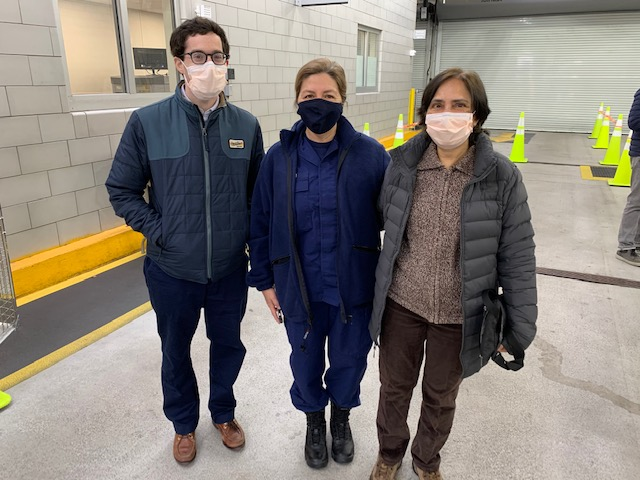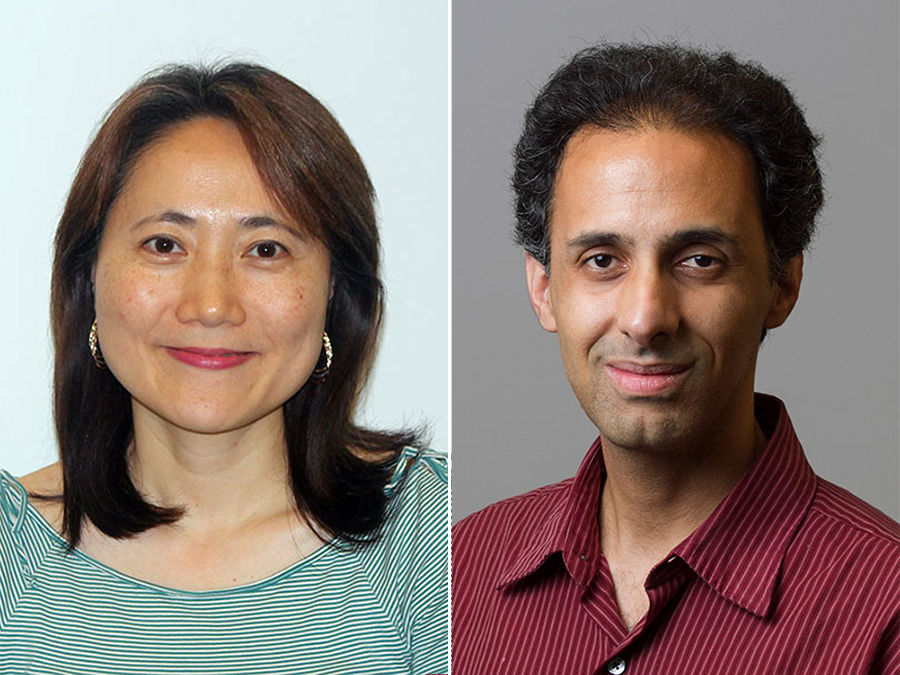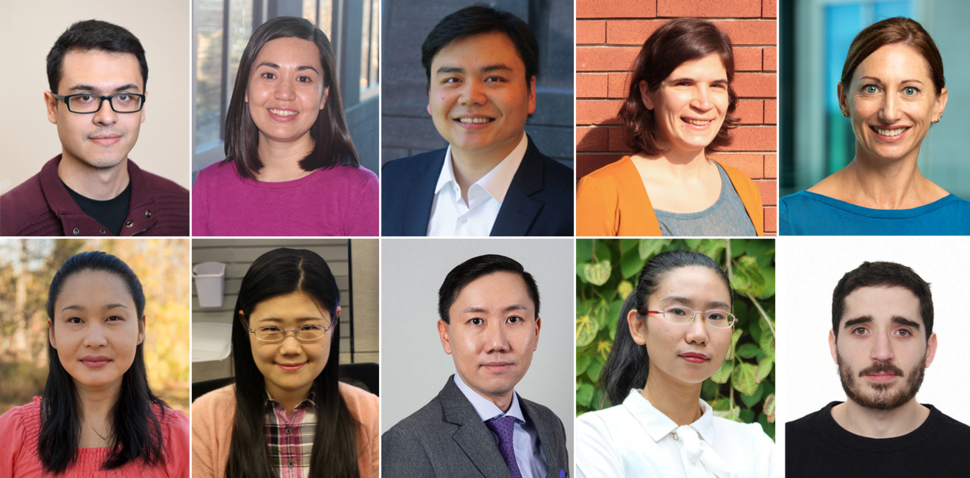2021 Awards Announced at DCEG Town Hall
In November 2021, Director Stephen J. Chanock, M.D., recognized accomplishments of DCEG investigators and fellows who have made substantial contributions and service to the Division with the following awards.
2021 NIH Director’s Awards
Call Center Team—Neil Caporaso, M.D. (retired)
“For the outstanding coordination and implementation of the COVID-19 Call Center to address health and safety concerns of the NIH workforce”
Car Line Team—Margarita Aryavand, M.S.N., C.N.F.P., Neelam Giri, M.D., and Michael Sargen, M.D.
“For extraordinary efforts to operate a drive-thru sampling site for symptomatic testing and helping to track and curb the COVID-19 pandemic”
COVID-19 Contact Investigations Team—Janet Bracci, R.N., B.S.N., Maureen Risch, R.N., B.S.N., and Youjin Wang, Ph.D.
“For tireless efforts to conduct swift and excellent contact tracing for all cases of COVID-19 in the NIH staff population”
COVID-19 Serosurvey Team—Barry Graubard, Ph.D.
“For establishing and analyzing the first representative US serosurvey of SARS-CoV-2, leading to identification of 17 million undiagnosed cases of COVID-19 as of summer 2020”
2021 NCI Outstanding Mentor Awards
Mentoring is a core value of DCEG. The NCI Outstanding Mentor Award recognizes NCI scientists for excellence in guiding the careers of trainees in cancer research. The review committee—made up of trainees from across the institute—evaluates nominations submitted by fellows for mentoring quality by scientific expertise, accessibility, communication, training environment, provision of visibility for trainees, commitment to trainees’ career development, and encouragement of mentoring. This year two investigators from the NCI were awarded this honor by the trainee community, both in DCEG: Jiyeon Choi, Ph.D., M.S., Earl Stadtman tenure-track investigator in the Laboratory of Translational Genomics, and Hormuzd A. Katki, Ph.D., senior investigator in the Biostatistics Branch. In particular, the committee noted their exceptional commitment to the training and growth of junior scientists. The nomination packages cited the following qualities:
“Dr. Choi is both highly organized and incredibly generous—not only with her time but also with her attention, encouragement, and kindness; she seems genuinely excited to meet with you. She is an exceptional leader and role model. Those who are fortunate enough to work with her can always look to her to learn how to become a better scientist and person. She demonstrates that great scientists can be great mentors, too.”
“An example of the open, supportive environment Dr. Katki creates is the way his former fellows continue to turn to him for advice even after he has stopped being their formal mentor. He always listens carefully to my thoughts and ideas, so that he can understand quickly, ask crucial questions, provide solutions or ideas, and suggest related literature. Dr. Katki pushes me to take initiative, to pursue the projects I’m interested in, and to constantly extend my comfort zone—all habits that will serve me well as an investigator.”
2022 DCEG Fellows Award for Research Excellence Winners
The DCEG Fellows’ Award for Research Excellence (DFARE) recognizes the outstanding scientific research performed by DCEG fellows and provides funding for travel to scientific meetings or conferences. These contributions may include formulating research ideas, developing study designs, conducting fieldwork and analysis, or interpreting results. Each of the recognized fellows also must have played a major role in drafting a manuscript.
This year 10 winners were selected:
Kelvin C. de Andrade, Ph.D., M.Sc.
“Quantification of cancer incidence, patterns, and genotype-phenotype associations in individuals with pathogenic or likely pathogenic germline TP53 variants”
Daniela S. Gutiérrez-Torres, Sc.D., M.S.
“Low intensity daily smoking and mortality risk among women in the Mexican Teachers Cohort (MTC) Study”
Jim Mai, M.D., Ph.D., M.P.H.
“Reproductive factors, hormone use, and incidence of melanoma in a cohort of United States’ radiologic technologists”
Elisa Pasqual, M.D., Ph.D.
“Risk of second primary malignancies after radioactive iodine treatment for thyroid cancer in patients younger than 45 years: A SEER (1975-2017) database analysis”
Camella Rising, Ph.D., M.S., R.D.N.
“Challenging family interactions about Li-Fraumeni syndrome from the perspective of adolescents and young adults: Results from a qualitative-descriptive study”
Jeanny Wang, M.P.H.
“Eosinophil-to-Lymphocyte Ratio and Cancer Risk in the UK Biobank”
Lingxiao Wang, Ph.D.
“Nationally representative individualized risk models combining individual data from epidemiologic studies and representative surveys with summary statistics from disease registries”
Jason Wong, Sc.D.
“Alu retroelement copy number and lung cancer risk in the prospective Prostate, Lung, Colorectal and Ovarian Cancer (PLCO) Screening Trial”
Shuai Xie, Ph.D., M.P.H.
“Using quantile regression to identify the determinants of pesticide concentrations in house dust when there are large proportions of non-detects”
Semi Zouiouich, Ph.D.
“Stability of fecal and oral microbiome over long-term storage using multiple collection methods”


